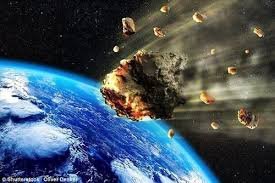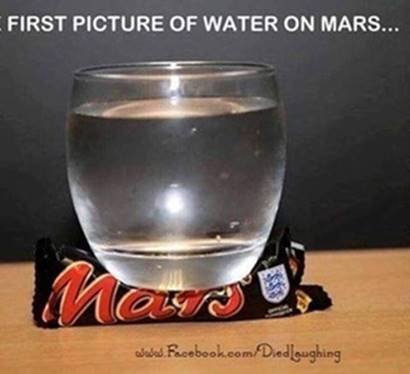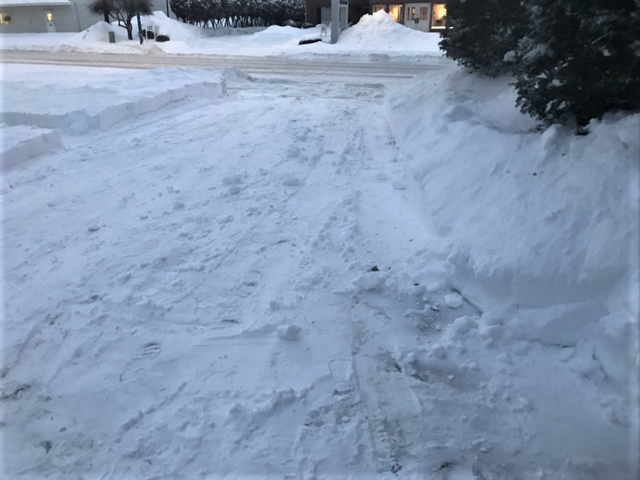Most of the Southwest United States is in drought, which should come as no surprised to those who who've heard the term "Desert Southwest". After all, Phoenix, Arizona, was built on a place that got so dry the Native Americans moved away.
Now the Phoenix rising from the ashes is a roasted bird, Las Vegas is turning from Sin City to Sand City, and the Hoover Dam will someday be called the Hoover Wall. Climate change? Well, yeah--Mother Nature has stepped out of the bath and is drying herself with a huge sandy towel.
The question is, what's to be done? We can't just hope California slides into the sea and changes weather patterns--we don't get that lucky. Oh, and people live there, that too.
So, how do we solve this problem?
Okay, we could detonate nuclear weapons off the California coast, which would cause waves to wash over the land. There are a few problems with this idea, the main one being that the water wouldn't go far enough inland. Plus, it's salt water. Plus, you know, people. The surfing would be awesome, though.
Scientists have learned many asteroids and comets contain water ice. We could steer one this way and drop it over the Southwest--I'm thinking California--where it would not only provide water, but also remove an awfully lot of the demand for water.

"Honey, it looks like rain!"
This didn't work out so well for the dinosaurs.
But I had an idea--one that makes just much sense as, say, the Congressional budget process, or the Kardashians. I originally came up with it during the Great Recession, in around 2008. At the time we'd had problems with drought or flooding, or maybe both, and while pondering it I had my own brainstorm.
Why did I not speak up? Because it was huge. Huge. I figured people would just make fun of it.
But I'm older now, and honestly I just don't give a dam. (Dam, get it? Never mind.)
Then, in 2015, William Shatner floated a similar idea. I figured if it's good enough for Captain Kirk, it's good enough for me.

Maybe Captain Kirk could tell help find the water.
Now, what are the two water related problems facing the US today? That's right: too little water, and too much water. (We northern Hoosiers are getting soaked pretty good at the moment.) So ...
Pipelines.
I know what you're thinking: "Mark, that would be insanely expensive!"
Hear me out. First of all, manpower would come from every able bodied person in the country who, for one reason or other, is getting government money. They would be trained in the necessary skills to build pipelines across the country, and paid to do it. If they're capable of doing the work but choose not to, then they just don't get taxpayer money--pretty much as simple as that.
Nothing would flow through these pipelines but water. Further--and this is important--water will go to drought stricken areas, but only from areas that are getting too much water. If it's flooding in Alabama, that water goes to Arizona. If there's no flooding going on anywhere in America, then the dry places have to hang on as best they can. No siphoning water from the Great Lakes, or the Mississippi River, unless they're overflowing their banks. Flood waters would go first to drought areas in the same state, if there are any.

They can have our snow, too.
That would make it complicated, and at first enormously expensive. It might also go slowly, as only enough people would work on it to get the unemployment rate as low as possible. But in the long run it would give people jobs and future skills, reduce flood losses, and help make the Southwest green again. The pipelines could even be tapped for firefighting as they pass through rural areas.
Granted, it won't solve all our problems: The Kardashians will still be there.
It's a sensible solution that would take only political will, which is exactly why it will never happen.
But it's nice to think about, isn't it? Top off Lake Meade, help out the farmers who feed us, and Californians can stay in California. I mean, they'll still have the earthquakes, but no plan is perfect.
http://markrhunter.com/
https://www.amazon.com/-/e/B0058CL6OO
https://www.barnesandnoble.com/s/"Mark R Hunter"
Well, there is the problem of getting the flood water into the pipelines. May be a more decentralized system would help with that. Like issueing crates with water bottles or barrels to the people (in the regions with much rain), who then can fill them with the water that has flooded their house, instead of just pumping it out of the window, from where it just comes back in anyway.
And then everybody who is traveling west - into a dry region - is obliged to take a few crates with him. Most people drive alone or with just one other person in the car, so there is plenty of room for that. And those who return can bring the empty bottles back to the flood regions.
It may also promote a new feeling of solidarity and unity, which is missed nowadays. "United we stand" and all, you know. Plus, carrying crates is a good training for shoulder muscles. :)
Downvoting a post can decrease pending rewards and make it less visible. Common reasons:
Submit
Well, you just solved that part of the puzzle!
Downvoting a post can decrease pending rewards and make it less visible. Common reasons:
Submit
Yeah, but now there is a new problem already: the extreme heat in the north west and west coast region.
I'm working on that one, but don't have anything so far. Was thinking of towing icebergs down from the arctic - but they are melting already there.
Downvoting a post can decrease pending rewards and make it less visible. Common reasons:
Submit
Oh, I already thought of that. Once we've pumped enough water there, we can begin planting a lot of foliage and trees. When Phoenix expanded and began doing that (back when they had water), it actually reduced the temperature in the city. Just like walking into a forest and noticing it's cooler--and no icebergs needed.
Okay, I just now thought of that, but it could happen.
Downvoting a post can decrease pending rewards and make it less visible. Common reasons:
Submit
Well, thats more of a long term project. And Phoenix is just one city - but this heat wave area stretches out for thousands of miles.
The iceberg idea is probably off the table anyway. Because they sonn don't have icebergs anymore. The pole ice cap is already reduced to half its previous size. And the famous nort-west passage, which didn't exist when they send expeditions to find it, is now actually open.
So not really enough ice there, other than for making a drink.
But in theory this idea of changing a regional climate by planting forests does work, and the Chinese have experimented with that. To stop further desertification and sand storms and such, which has increased and causes problems for the big cities.
Downvoting a post can decrease pending rewards and make it less visible. Common reasons:
Submit
It's a lot easier for the Chinese to try these things. "Okay, you're all going to work on this. Or else. Remember, our men outnumber our women by a hundred to one, so who's going to miss a few million of you?"
Downvoting a post can decrease pending rewards and make it less visible. Common reasons:
Submit
They probably don't need to be as harsh as that. Its much easier to simply pay the workers and appeal to their patriotic pride, since they work together for a greater cause. And those who live in the big cities themself don't need to be talked into it - they know first hand how nasty this smog and sandstorms can be.
But its all a monumental task of course. Just planting a little forest doesn't change the climate already. Its got to be thousands of square miles. And it takes time, too. Its much easier to create a desert than to reverse that again.
Downvoting a post can decrease pending rewards and make it less visible. Common reasons:
Submit
The government should never tell Americans to work together for a greater cause! They can do it, but it needs to sound like it's their idea or a threat from some other part of the world--then they can't be beat, no matter what the challenge. The whole country was founded on the notion of being contrary.
But pay helps, of course.
Downvoting a post can decrease pending rewards and make it less visible. Common reasons:
Submit